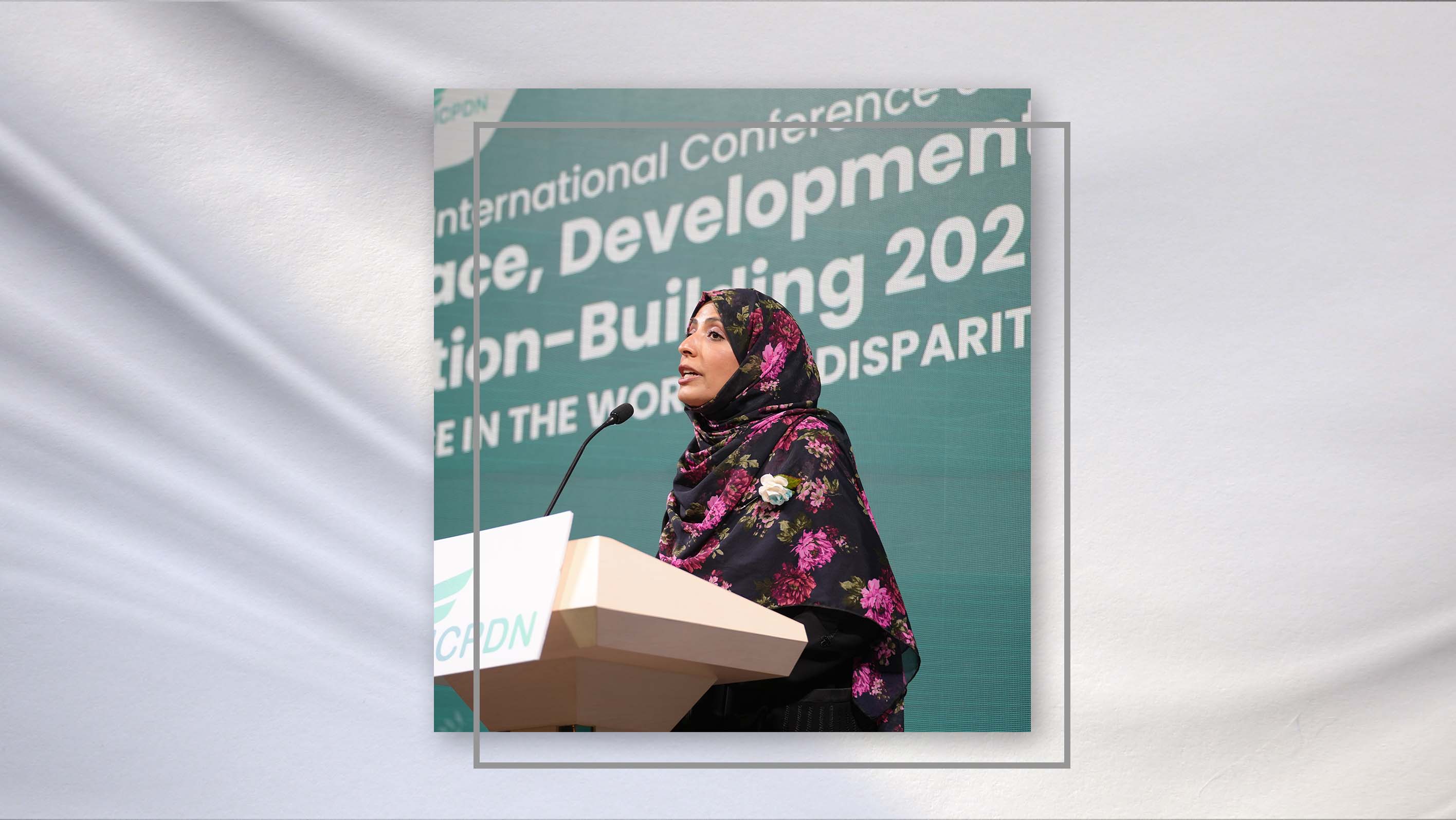
Tawakkol Karman speech at International Conference on Peace - Thailand
Ladies and Gentlemen, Distinguished Guests, and Esteemed Colleagues,
I am deeply honored to stand before you today here in the beautiful country of Thailand at the International Conference on Peace, Development, and Nation-Building 2024. The theme of this gathering “Peace in a World of Disparity,” comes at a pivotal time in our global journey. As we navigate an era marked by rapid technological advancements, we are simultaneously confronted with intensifying tensions arising from inequality, racial divisions, tyrannies, and conflicts over resources. These tensions are not only internal problems: the Russian war against Ukraine, the Israeli occupation and systemic destruction of Palestine, the wars in Sudan, Syria, Congo, and Yemen. Additionally, wars waged by tyrants against their own people spread injustice and conflict. These conflicts send shockwaves far beyond the borders of one or two countries, affecting global peace, security, and many nations worldwide.
Understanding Disparities
To understand peace in a world of disparity, we must first delve into the nature of these disparities. Socioeconomic disparities manifest in the form of wealth gaps, unequal access to education, healthcare, and employment opportunities. Racial disparities are evident in systemic discrimination, biased law enforcement practices, and underrepresentation of communities in various spheres of life. Environmental disparities highlight the unequal distribution of natural resources and the disproportionate impact of environmental degradation on vulnerable communities. Cultural disparities often stem from a lack of understanding and appreciation of diversity, leading to social fragmentation.
These disparities are not isolated; they are interwoven and exacerbate one another. For instance, socioeconomic disparities often lead to environmental injustices, where poorer communities bear the brunt of pollution and climate change. Similarly, racial disparities can compound economic inequalities, creating a vicious cycle that is hard to break.
Impacts on Peace
The link between disparities and conflicts is undeniable. Inequalities breed resentment and frustration, which can easily escalate into violence. The lack of equitable opportunities and resources fosters a sense of injustice and marginalization. When people feel excluded from the benefits of development and progress, they are more likely to resort to extreme measures to voice their grievances. This is evident in many parts of the world where protests and uprisings have been sparked by a combination of economic hardship, racial discrimination, and political disenfranchisement.
The Russian-Ukrainian conflict serves as a stark reminder of how dictatorship, geopolitical disparities, and historical grievances can lead to prolonged and devastating wars.
We must acknowledge that dictatorships represent one of the most significant dangers to both global and internal peace. Dictatorships often perpetuate systemic oppression, human rights abuses, and conflicts. They undermine the rule of law, stifle dissent, and create environments of fear and repression.
For sustainable peace, it is crucial to ensure the protection of fundamental human rights, including freedom of expression, assembly, and the press. Additionally, ensuring inclusive and participatory governance, as well as robust democratic institutions, is essential, as these are the cornerstones of peaceful societies.
Inclusive societies are built on the recognition that diversity is a strength. When individuals from different backgrounds come together, they bring unique perspectives and solutions to common challenges. Policymakers must engage in genuine dialogue with all sectors of society. This involves creating transparent mechanisms for political participation, ensuring the rule of law, and holding accountable those who violate human rights.
Rights of Nature
Recognizing the rights of nature is a powerful approach to addressing disparities and achieving a more equitable society.
Policies should protect natural ecosystems and promote sustainable development, this will help bridge the gap between environmental and social disparities.
We should work for Environmental justice to ensure that all communities around the world, regardless of their socioeconomic status or racial background, have access to a healthy environment. This includes clean air and water, safe housing, and green spaces. We must stop this reckless exploitation of the Earth's resources, stop the emission of fossil fuels, and protect Mother Earth's biodiversity and ecosystems.
The War in Gaza and Supporting the People There
Finally, as we gather to discuss peace and disparities, we cannot overlook the ongoing war in Gaza.
We shouldn’t forget that there is a war of genocide and ethnic cleansing taking place today in Gaza, the likes of which the world has not seen since World War II. This situation is now being discussed in the International Court of Justice and the International Criminal Court to condemn Israel and issue arrest warrants against the perpetrators of these massacres.
I call on Thailand to support these two tribunals and demand an immediate ceasefire, an end to the occupation, and the reconstruction and provision of all humanitarian needs. Additionally, the perpetrators of these massacres must be tried before the Court of Justice, and the Palestinian people must be enabled to establish their free and independent state.
To watch the speech click here
